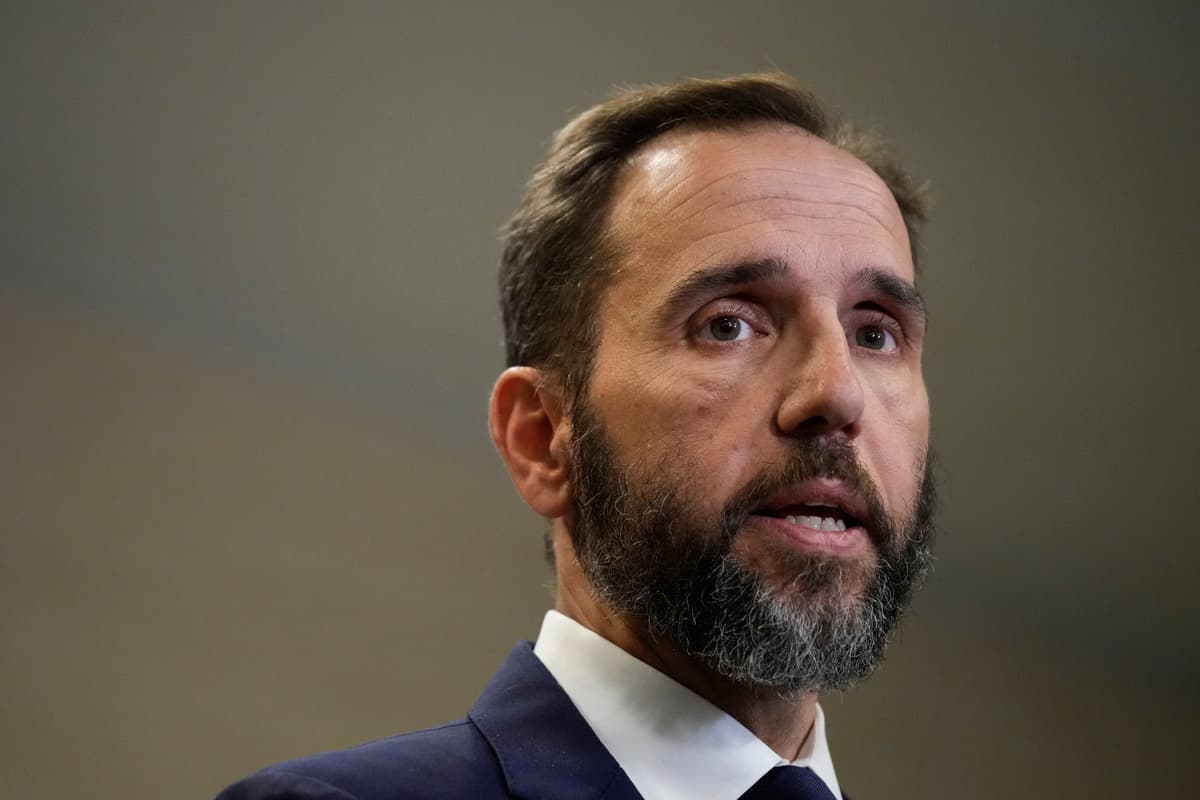Jack Smith’s Withdrawal From Mar-a-Lago Case Against Trump Raises the Question: Was His Case Ever Valid?
A legal scholar tells the Sun that, if the prosecutor were unlawfully appointed, the counts against the 45th president and his employees could be invalid from their inception.

Special Counsel Jack Smith’s handoff of his troubled classified documents criminal case to the United States attorney for the Southern District of Florida is a bowing to legal reality — and a sign of defiance that Mr. Smith intends for his case to carry on even without him. Are those charges, though, still viable?
The prosecution, which stems from the storage of classified documents at President-elect Trump’s seat, Mar-a-Lago, has been upended in recent months by a series of developments that have augured ill for Mr. Smith. First, Judge Aileen Cannon dismissed the charges after finding that the special counsel was unlawfully appointed by Attorney General Garland.
Next, Trump beat Vice President Harris in last month’s presidential election. The Department of Justice subsequently barred Mr. Smith from prosecuting this case and his election interference one because Trump will soon take office. The DOJ has now thrice held that there is a “categorical” prohibition against trying a sitting president. Mr. Smith, acknowledging that the ruling is “binding,” moved for dismissal of all charges against Trump.
Those requests have been granted, but the president-elect is not the only defendant in the documents case. Mr. Smith also charged the 45th president’s valet, Waltine Nauta, and Mar-a-Lago’s manager, Carlos De Oliveira. Both were charged with counts of conspiracy and obstruction for allegedly working to prevent federal agents from recovering the documents stashed around the property.
Judge Cannon’s dismissal covered them as well — she found that the entire prosecution was tainted by what she took to be Mr. Garland’s appointment blunder — but before Mr. Smith conceded defeat he appealed that ruling to the 11th United States Appeals Circuit, asking that it reverse Judge Cannon and reinstate the prosecution.
That is the state of the case as Mr. Smith turns it over to the United States attorney for the Southern District of Florida, Markenzy Lapointe. Mr. Lapointe was born at Port-au-Prince, the son of a tailor and a street vendor. He was nominated to the bench by President Biden, and confirmed by a voice vote in the Senate.
Mr. Smith’s motion to the 11th Circuit explains that “the United States of America moves to withdraw” from the prosecution and that “the Special Counsel has now referred this case to the United States Attorney’s Office for the Southern District of Florida.” In theory, such a move remedies Judge Cannon’s determination that Mr. Smith’s appointment was unlawful because he was not confirmed by the Senate.
The Sun spoke to one of the lawyer who argued that point before Judge Cannon. The lawyer, Joshua Blackman, ventures that even Mr. Smith’s retreat might not be enough to undo the constitutional damage of his appointment. That’s because if the special counsel was never qualified to prosecute the case in the first place, the indictments he secured could be invalid — for anyone to press. He reckons that this issue “is still to be litigated.”
Another problem for Messrs. Smith and Lapointe is that United States attorneys serve at the pleasure of the president, and lack the job protection that has been granted to special counsels. As soon as Trump takes the oath of office, he could fire Mr. Lapointe and appoint an acting United States attorney — who would presumably dismiss all charges — until a permanent one is confirmed by the Senate.
Trump could also opt to simply pardon Messrs. Nauta and De Oliveira. The Constitution ordains that the president “shall have Power to grant Reprieves and Pardons for Offenses against the United States,” which the Supreme Court has interpreted to mean federal crimes like the ones charged to Trump’s two employees.
The Nine ruled in Trump v. United States that the issuing of pardons is entitled to “absolute” immunity because it rests in the “conclusive and preclusive” authority of the president.

